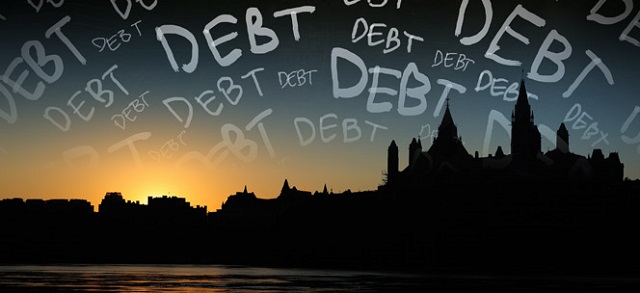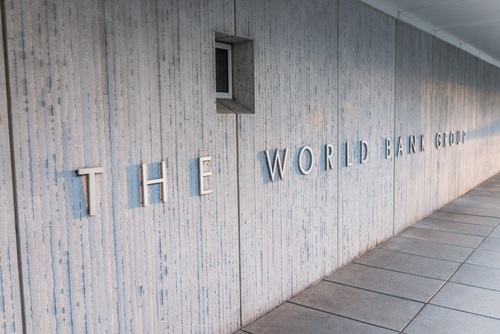Business
City homeowners and non-residential property owners will enjoy slight DECREASE in taxes in 2022

Red Deer tax rates approved by City Council
Red Deer City Council approved the tax rate bylaw at their regular meeting.
Recognizing the need to support economic recovery for Red Deerians, Council approved the City budget in November with a zero per cent municipal tax increase for 2022 to minimize financial impact on taxpayers.
“Our objective is to lessen the financial burden on our citizens and businesses, while ensuring The City can continue to provide essential services like police, emergency response and critical infrastructure maintenance,” said Mayor Ken Johnston.
When combined with requisitions The City must collect on behalf of other organizations, there will be a tax decrease of 0.30 percent for residential and non-residential properties. Multi-family properties will see a tax increase of 0.53 percent.
For 2022 tax penalty rates have been lowered from the historical seven percent to five percent. Penalties are applied to current year unpaid taxes on July 1 and September 1, and on taxes in arrears on January 1 and July 1. This lower penalty rate will provide continued financial support for those having difficulty paying by the due date.
“We have made this change to provide financial relief to taxpayers who may be struggling as a result of impacts of the pandemic,” said Joanne Parkin, Revenue and Assessment Manager. “We encourage anyone who may not be able to pay their taxes by the deadline to pay as much as they can to reduce penalties, and to reach out to our office to discuss payment options.”
At today’s meeting City Council also approved the Business Improvement Area (BIA) Tax Rate bylaw. The BIA tax applies to taxable businesses in the downtown to fund the Downtown Business Association (DBA) budget, which was approved by Council in December. There was no increase on the tax revenue requirement in 2022 and minimum tax will remain the same.
“An increase in the number of businesses reopening or moving into the BIA may indicate signs that downtown business is beginning to stabilize and recover from the pandemic,” said John Sennema, Economic Development Manager. “That in conjunction with a stronger economy will hopefully continue this trend.”
The deadline for 2022 property taxes and BIA taxes is June 30, any unpaid taxes will be subject to a five percent penalty on July 1. Owners can join the Tax Instalment Plan (TIP) until June 15 to make tax payments through to the end of the year in equal monthly payments with no penalty.
Tax notices will be mailed May 24. Approximately 6,500 households have opted to receive their notices electronically, and the remaining notices will be distributed by mail.
Property owners wishing to connect with The City about their tax bill can email [email protected] or call 403-342-8126. More information about the Tax program is available on the City’s website at www.reddeer.ca/tax.
Business
CBC’s business model is trapped in a very dark place

I Testified Before a Senate Committee About the CBC
I recently testified before the Senate Committee for Transport and Communications. You can view that session here. Even though the official topic was CBC’s local programming in Ontario, everyone quickly shifted the discussion to CBC’s big-picture problems and how their existential struggles were urgent and immediate. The idea that deep and fundamental changes within the corporation were unavoidable seemed to enjoy complete agreement.
I’ll use this post as background to some of the points I raised during the hearing.
You might recall how my recent post on CBC funding described a corporation shedding audience share like dandruff while spending hundreds of millions of dollars producing drama and comedy programming few Canadians consume. There are so few viewers left that I suspect they’re now identified by first name rather than as a percentage of the population.
Since then I’ve learned a lot more about CBC performance and about the broadcast industry in general.
For instance, it’ll surprise exactly no one to learn that fewer Canadians get their audio from traditional radio broadcasters. But how steep is the decline? According to the CRTC’s Annual Highlights of the Broadcasting Sector 2022-2023, since 2015, “hours spent listening to traditional broadcasting has decreased at a CAGR of 4.8 percent”. CAGR, by the way, stands for compound annual growth rate.
Dropping 4.8 percent each year means audience numbers aren’t just “falling”; they’re not even “falling off the edge of a cliff”; they’re already close enough to the bottom of the cliff to smell the trees. Looking for context? Between English and French-language radio, the CBC spends around $240 million each year.
Those listeners aren’t just disappearing without a trace. the CRTC also tells us that Canadians are increasingly migrating to Digital Media Broadcasting Units (DMBUs) – with numbers growing by more than nine percent annually since 2015.
The CBC’s problem here is that they’re not a serious player in the DMBU world, so they’re simply losing digital listeners. For example, of the top 200 Spotify podcasts ranked by popularity in Canada, only four are from the CBC.
Another interesting data point I ran into related to that billion dollar plus annual parliamentary allocation CBC enjoys. It turns out that that’s not the whole story. You may recall how the government added another $42 million in their most recent budget.
But wait! That’s not all! Between CBC and SRC, the Canada Media Fund (CMF) ponied up another $97 million for fiscal 2023-2024 to cover specific programming production budgets.
Technically, Canada Media Fund grants target individual projects planned by independent production companies. But those projects are usually associated with the “envelope” of one of the big broadcasters – of which CBC is by far the largest. 2023-2024 CMF funding totaled $786 million, and CBC’s take was nearly double that of their nearest competitor (Bell).
But there’s more! Back in 2016, the federal budget included an extra $150 million each year as a “new investment in Canadian arts and culture”. It’s entirely possible that no one turned off the tap and that extra government cheque is still showing up each year in the CBC’s mailbox. There was also a $93 million item for infrastructure and technological upgrades back in the 2017-2018 fiscal year. Who knows whether that one wasn’t also carried over.
So CBC’s share of government funding keeps growing while its share of Canadian media consumers shrinks. How do you suppose that’ll end?
We make content free for you but we require support to create journalism. Please consider a free subscription to our newsletter, or donate an amount of your choice.
Business
PBO report shows cost of bureaucracy up 73 per cent under Trudeau

From the Canadian Taxpayers Federation
The Canadian Taxpayers Federation is calling on the federal government to rein in the bureaucracy following today’s Parliamentary Budget Officer report showing the bureaucracy costs taxpayers $69.5 billion.
“The cost of the federal bureaucracy increased by 73 per cent since 2016, but it’s a good bet most Canadians aren’t seeing anywhere close to 73 per cent better services from the government,” said Franco Terrazzano, CTF Federal Director. “Taxpayers are getting soaked because the size and cost of the federal bureaucracy is out of control.”
Today’s PBO report estimates the federal bureaucracy cost taxpayers $69.5 billion in 2023-24. In 2016-17, the cost of the bureaucracy was $40.2 billion. That’s an increase of 72.9 per cent.
The most recent data shows the cost continues to rise quickly.
“Spending on personnel in the first five months of 2024-25 is up 8.0 per cent over the same period last year,” according to the PBO.
“I have noticed a marked increase in the number of public servants since 2016 and a proportional increase in spending,” said Parliamentary Budget Officer Yves Giroux. “But we haven’t seen similar improvements when it comes to service.”
The Trudeau government added 108,793 bureaucrats since 2016 – a 42 per cent increase. Canada’s population grew by 14 per cent during the same period. Had the bureaucracy only increased with population growth, there would be 72,491 fewer federal employees today.
The government awarded more than one million pay raises to bureaucrats in the last four years, according to access-to-information records obtained by the CTF. The government also rubberstamped $406 million in bonuses last year.
“The government added tens of thousands of extra bureaucrats, rubberstamped hundreds of millions in bonuses and awarded more than one million pay raises and all taxpayers seem to get out of it is higher taxes and more debt,” Terrazzano said. “For the government to balance the budget and provide tax relief, it will need to cut the size and cost of Ottawa’s bloated bureaucracy.”
-

 Brownstone Institute1 day ago
Brownstone Institute1 day agoThe Most Devastating Report So Far
-

 Business1 day ago
Business1 day agoCarbon tax bureaucracy costs taxpayers $800 million
-

 ESG1 day ago
ESG1 day agoCan’t afford Rent? Groceries for your kids? Trudeau says suck it up and pay the tax!
-

 Daily Caller1 day ago
Daily Caller1 day agoLos Angeles Passes ‘Sanctuary City’ Ordinance In Wake Of Trump’s Deportation Plan
-

 John Stossel1 day ago
John Stossel1 day agoGreen Energy Needs Minerals, Yet America Blocks New Mines
-

 COVID-192 days ago
COVID-192 days agoDr. McCullough praises RFK Jr., urges him to pull COVID shots from the market
-

 MAiD2 days ago
MAiD2 days agoOver 40% of people euthanized in Ontario lived in poorest parts of the province: government data
-

 Alberta1 day ago
Alberta1 day agoProvince considering new Red Deer River reservoir east of Red Deer








